- Get link
- X
- Other Apps
It does this by teaching the bodys immune system to fight off a virus or bacteria it hasnt come into contact with before. For some vaccines genetic engineering is used to make the antigens used in the vaccine.
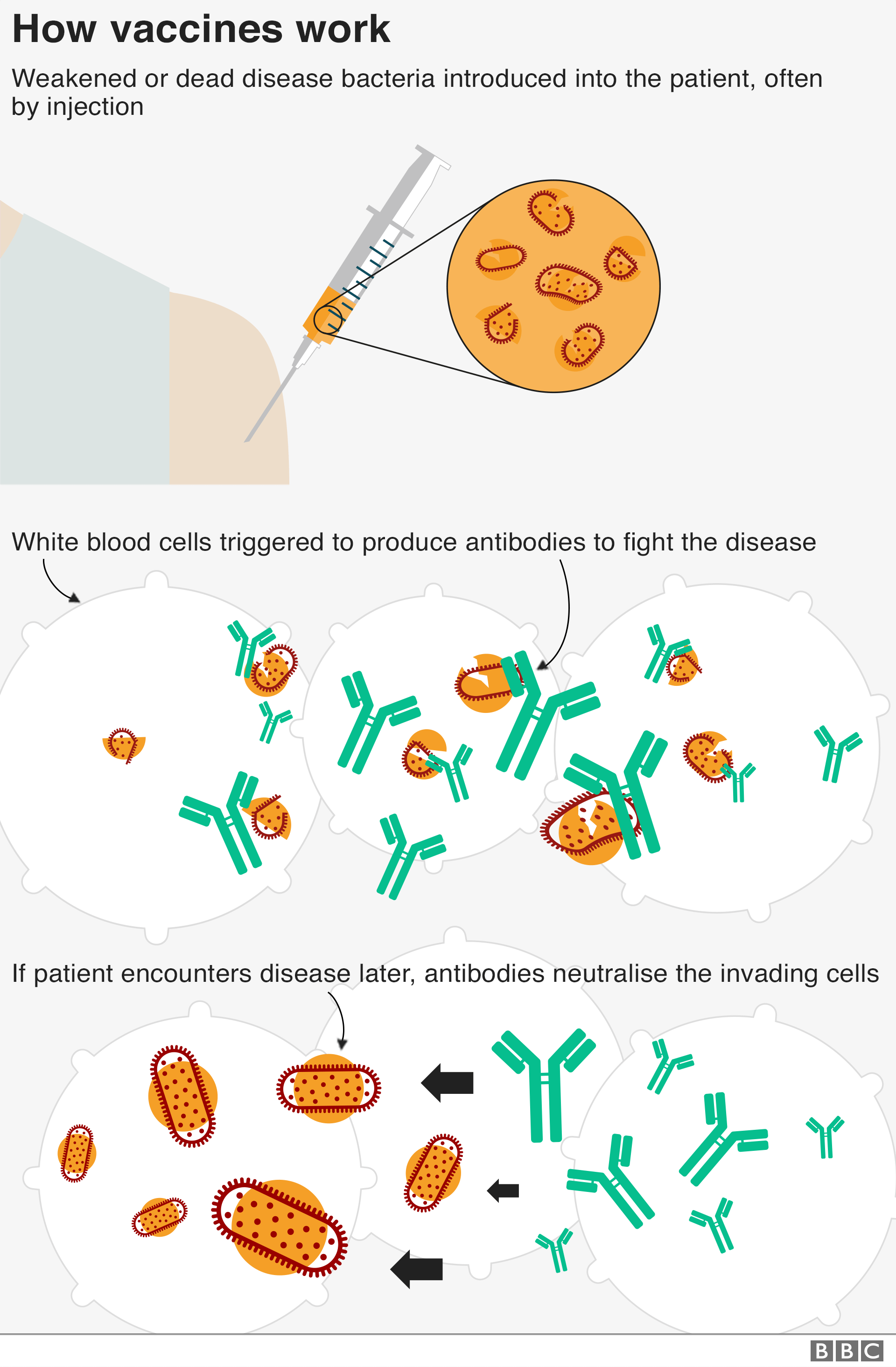 What Are Vaccines How Do They Work And Why Are People Sceptical Bbc News
What Are Vaccines How Do They Work And Why Are People Sceptical Bbc News
In stimulating the bodys adaptive immunity they help prevent sickness from an infectious disease.
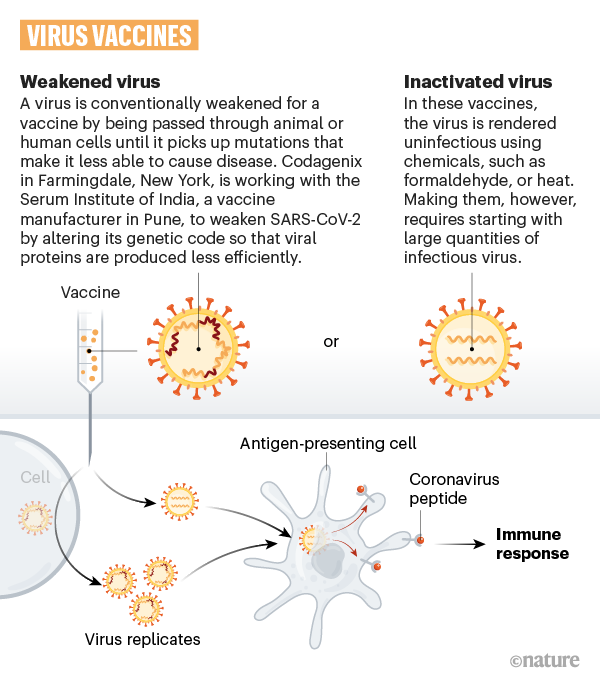
How do vaccines work. Vaccines contain a microorganism or virus in a weakened live or killed state or proteins or toxins from the organism. How do vaccines work. Vaccines train the immune system to recognise harmful organisms like viruses or bacteria that cause disease known as pathogens.
That way when you come into contact with that pathogen later your body is prepped and ready with the right disease-fighting antibodies to fight off the infection. When a disease-causing agent such as virus or bacteria invades your body your immune system recognises it as harmful and will trigger a response to destroy it. They work by introducing a harmless version of a pathogen known as an antigen to our immune cells so they can safely learn what the pathogen looks like.
Vaccines prevent diseases that can be dangerous or even deadly. A vaccine works by training the immune system to recognize and combat pathogens either viruses or bacteria. Vaccines are treatments that improve your immunity to a certain disease.
How Vaccines Work. Vaccination is the administration of a vaccine to help the immune system develop protection from a disease. Vaccines train your immune system to recognize and fight specific disease-causing organisms known as pathogens which include viruses and bacteria.
MRNA vaccines teach our cells how to make a proteinor even just a piece of a proteinthat triggers an immune response inside our bodies. Vaccines help develop immunity by imitating an infection. They then leave behind memory cells that can instigate a defense should the pathogen return.
After you are fully vaccinated against COVID-19 you may be able to start doing some things that you had stopped doing because of the pandemic. Vaccines work by preparing a persons immune system the bodys natural defences to recognise and defend itself against a specific disease. These molecules are called antigens and they are present on all viruses and bacteria.
Learn more about Getting Your Vaccine. How does vaccination work. However a significant drawback is that it needs to be stored at -70C.
Vaccines greatly reduce the risk of infection by working with the bodys natural defenses to safely develop immunity to disease. Your body produces different kinds of antibodies for different tasks. Only one dose of the Johnson Johnson vaccine is required.
They are usually made from weakened or killed bacteria or viruses. Vaccines work with your immune system so your body will be ready to fight the virus if you are exposed. Kate explain to me how vaccines work with our body to protect us.
The immune system is a network of cells tissues and organs that work together to help fight off infection from harmful bacteria or viruses. The vaccine which requires two doses has 95 efficacy rate. A vaccine is a type of medical treatment thats designed to prevent diseases.
They work by tricking the immune system into making. Vaccines work by training your immune system to recognize harmful pathogens without actually infecting you. They are made using killed or weakened versions of the disease-causing germ or parts of the germ called antigens.
Then theyre ready to recognise and target the invader for destruction when its. Their body then launches an attack against it thereby learning how to defeat the real virus. The genetic material in the vaccine tells our bodies to create a spike protein thats unique to COVID-19 and we then create antibodies that remember how to fight the virus.
Vaccines give you immunity to a disease without you getting sick first. Once injected the patients immune cells follow the vaccines instructions to build the coronavirus spike protein. Its much safer to get a vaccine than to get the disease it prevents.
Vaccines what they do is they are a part of the germ that our body can recognize and develop an immune response to so that the next time that we see the real germ there are already fighters in our body to protect us against the infection. Of course thats a very top-level explanation of what vaccines are and how they work. None of the vaccines contain the live COVID-19 virus nor do they alter your DNA or affect your chromosomes.
This type of infection however almost never causes illness but it does cause the immune system to produce T-lymphocytes and antibodies. Vaccines are overwhelmingly safe for the majority of people who receive them and they do not cause disease. The benefit of mRNA vaccines like all vaccines is those vaccinated gain protection without ever having to risk the serious consequences of getting sick with COVID-19.
All vaccines work by training the immune system to respond to future infection. This fact sheet explains how the body fights infection and how vaccines work to protect people by producing immunity. To do this certain molecules from the pathogen must be introduced into the body to trigger an immune response.
Sometimes after getting a vaccine the.
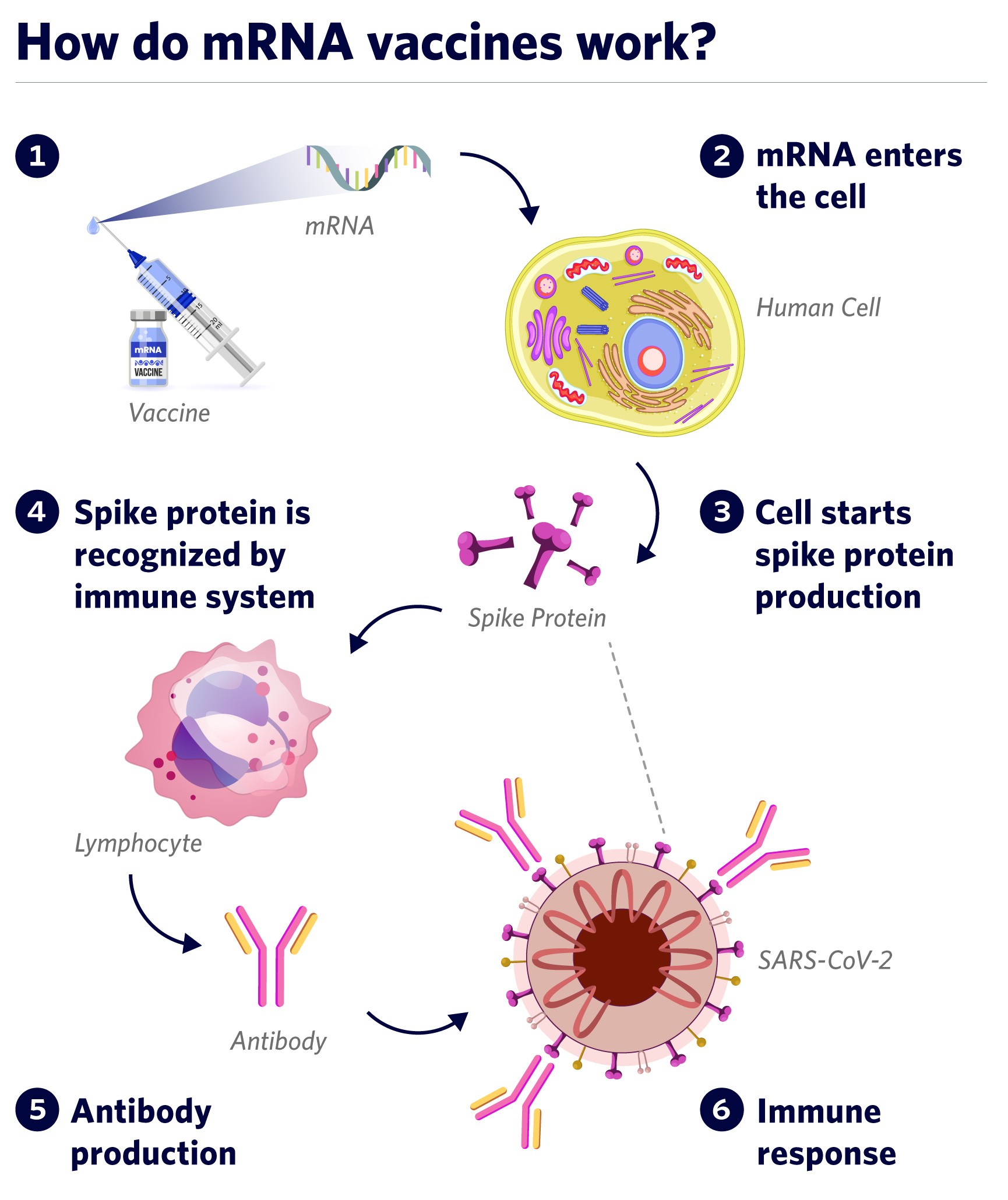 In A Nutshell How Vaccines Work Beyond
In A Nutshell How Vaccines Work Beyond
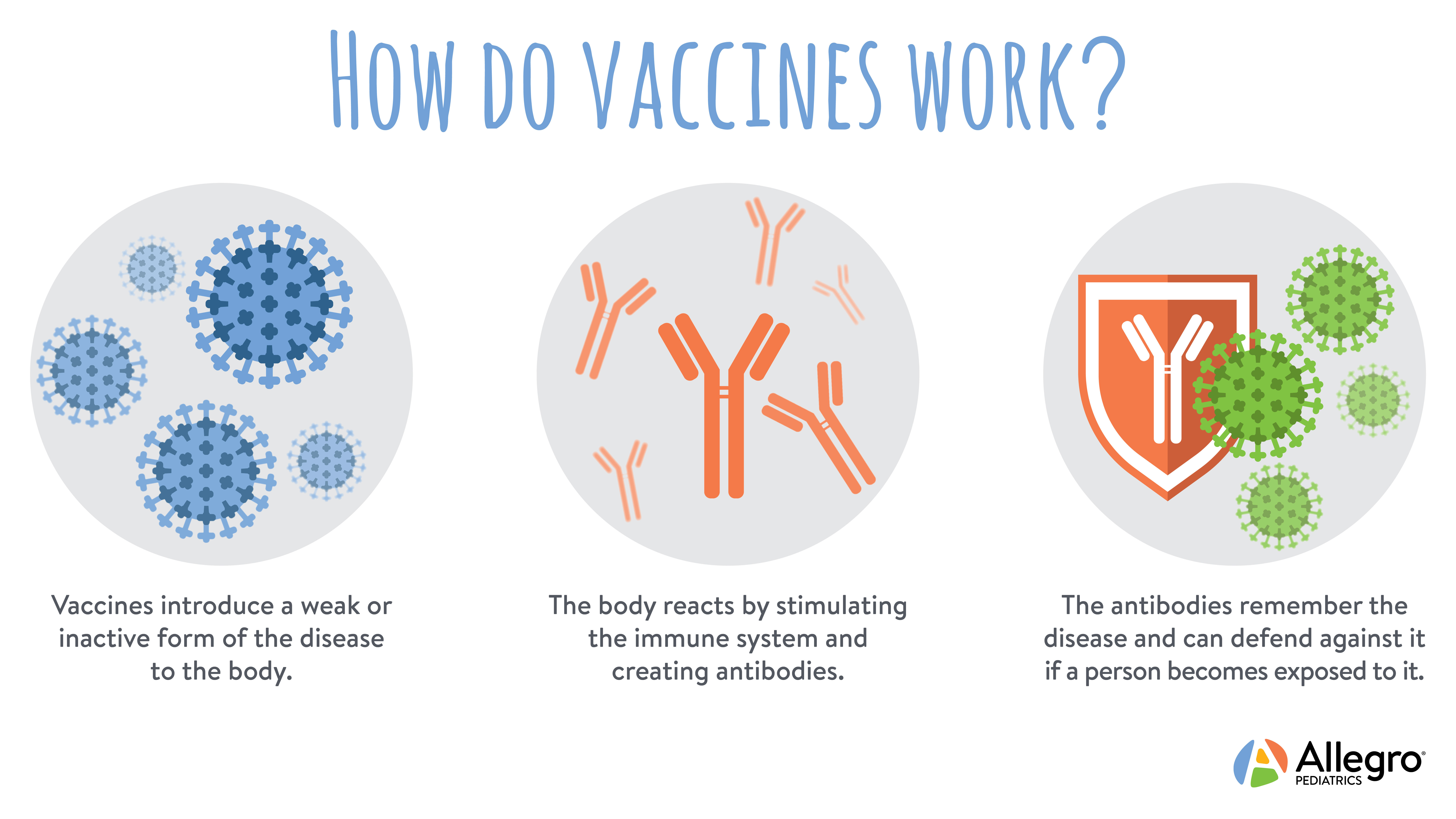 Immunization Myths Allegro Pediatrics
Immunization Myths Allegro Pediatrics
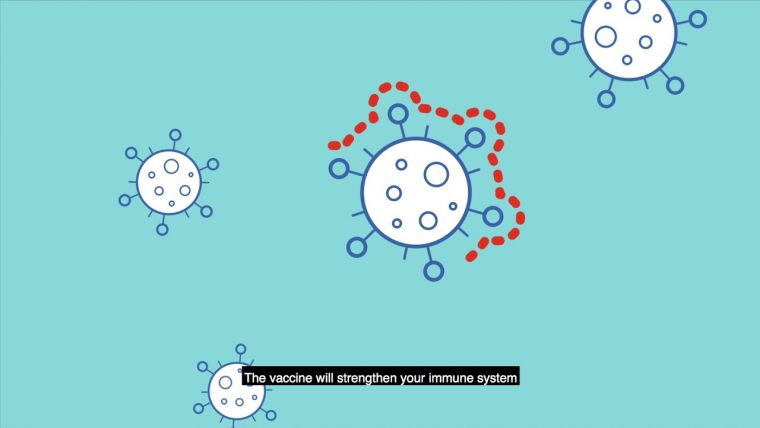 Covid 19 Vaccines How Vaccines Work Australian Government Department Of Health
Covid 19 Vaccines How Vaccines Work Australian Government Department Of Health
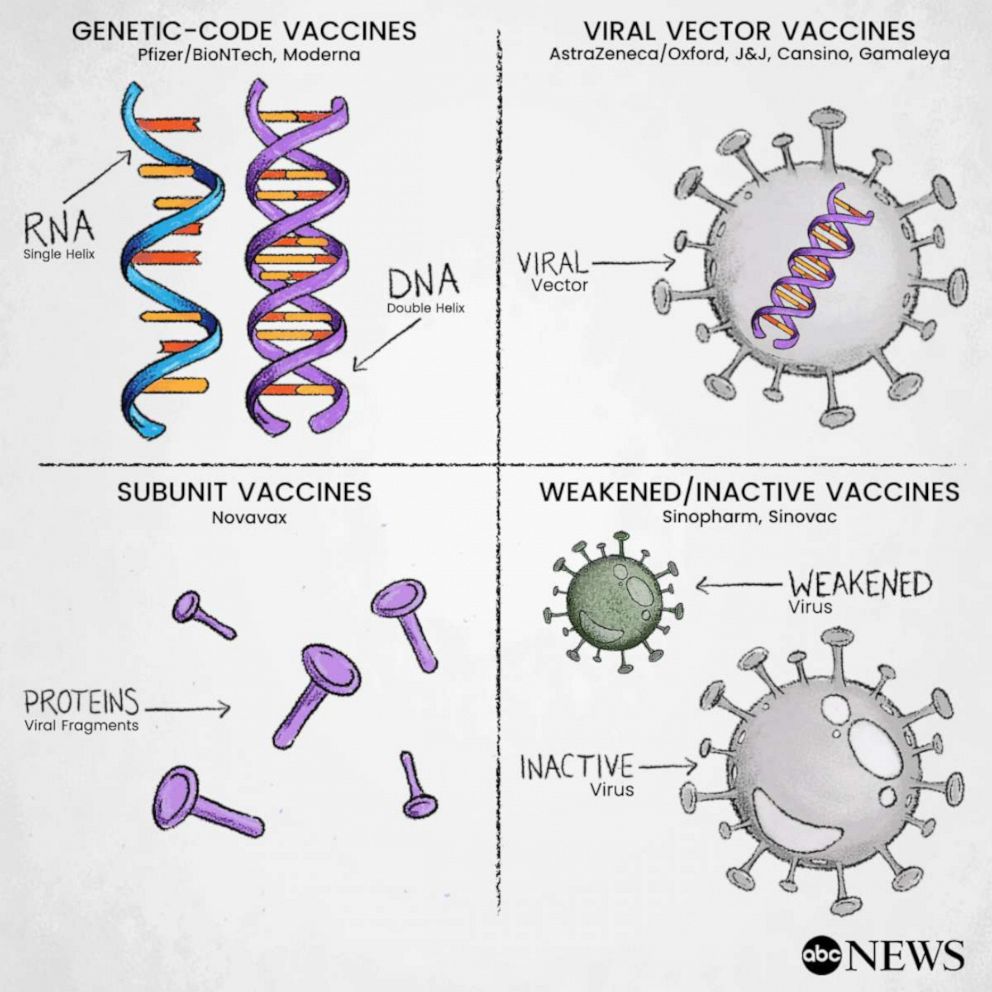 What To Know About Covid 19 Vaccines And How They Work Abc News
What To Know About Covid 19 Vaccines And How They Work Abc News
 The Race For Coronavirus Vaccines A Graphical Guide
The Race For Coronavirus Vaccines A Graphical Guide
 Why Vaccines Are Not Just For Children World Economic Forum
Why Vaccines Are Not Just For Children World Economic Forum
 How Vaccines Work Sciencedirect
How Vaccines Work Sciencedirect
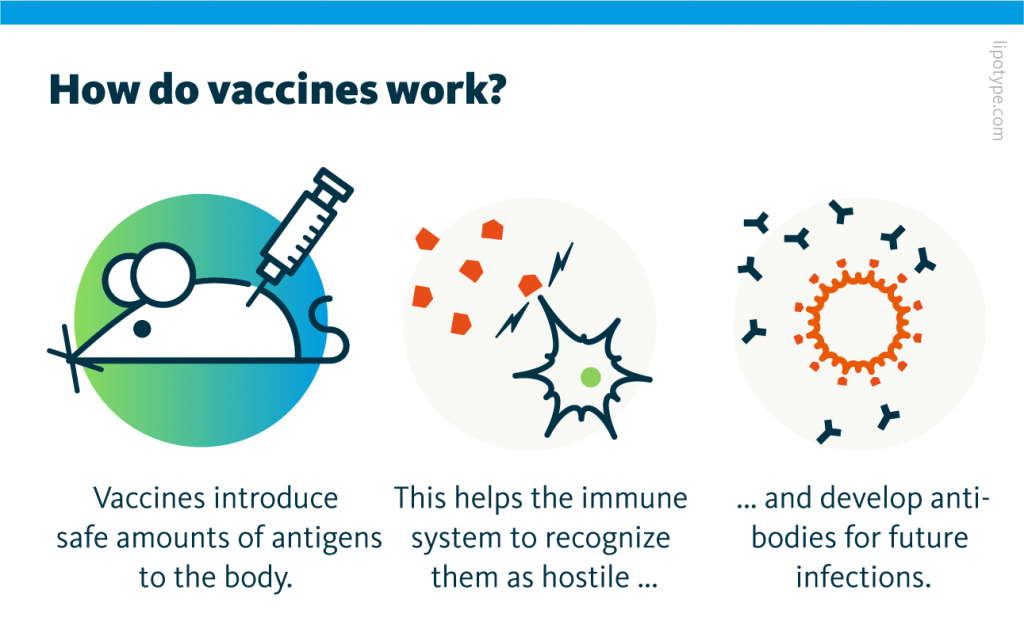 Lipid Adjuvants In Vaccines Vaccine Research Adjuvants And Lipids
Lipid Adjuvants In Vaccines Vaccine Research Adjuvants And Lipids
 How Vaccines Work British Society For Immunology
How Vaccines Work British Society For Immunology
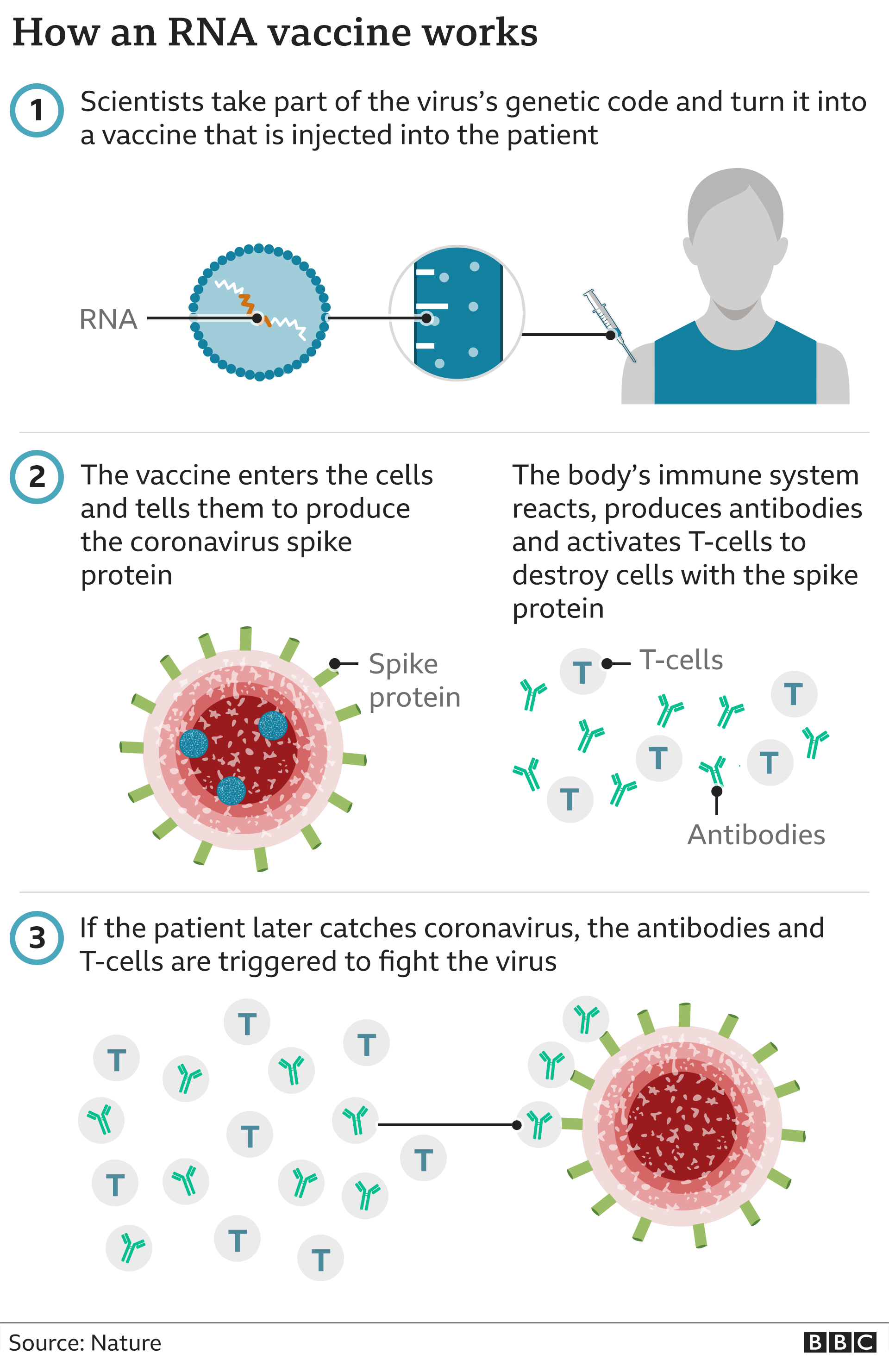 Covid Who Is Getting The Pfizer Vaccine First And When Can I Have It Bbc News
Covid Who Is Getting The Pfizer Vaccine First And When Can I Have It Bbc News
 Vaccine Safety 6 Common Questions Answered Mayo Clinic Health System
Vaccine Safety 6 Common Questions Answered Mayo Clinic Health System



Comments
Post a Comment